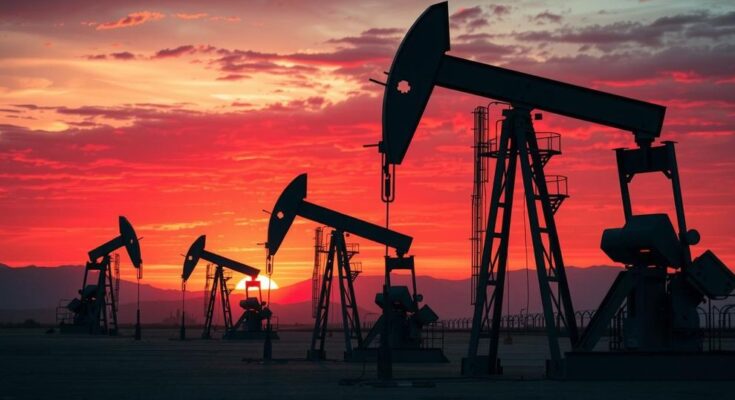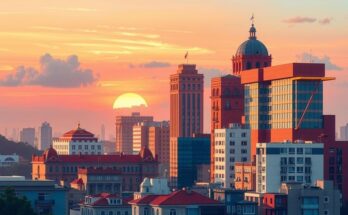Venezuelan President Nicolás Maduro declares that oil production will remain stable despite Chevron’s exit due to U.S. sanctions, promoting his “Absolute Productive Independence” plan. Opposition leader María Corina Machado supports these sanctions, linking oil revenue misuse to regime repression. Analysts foresee a potential economic slowdown and heightened inflation resulting from this development.
Venezuelan President Nicolás Maduro affirmed that the nation’s oil production would not decline as a result of Chevron’s recent departure, insisting, “Oil production will be maintained and will continue to grow.” He emphasized that under his strategy, titled “Absolute Productive Independence,” production levels would not be affected, asserting, “We will go forward, we will recover, we will grow, we will produce, and they will not touch the lives of the Venezuelan people.”
The U.S. government directed Chevron to suspend operations in Venezuela in a markedly shortened timeframe of 30 days, a significant reduction from the typical six-month notice, following Maduro’s failure to adhere to specific electoral and deportation obligations. Chevron’s involvement has been crucial in revitalizing Venezuela’s oil output, which exceeded one million barrels per day in January 2025, marking the highest rate since June 2019.
In contrast to Maduro, opposition leader María Corina Machado voiced support for the U.S. sanctions, arguing that they hinder Maduro’s access to funds utilized for oppressive measures rather than public benefits. Machado indicated that the government earned approximately $4.5 billion from Chevron’s operations last year, which she claimed was diverted toward elite military forces and luxurious lifestyles for Maduro’s associates.
Participating in a video call from an undisclosed location within Venezuela, Machado criticized the government’s spending habits, stating, “Oil revenues didn’t go to hospitals and schools, it was spent on repression”. She questioned the government about the allocation of financial resources, stressing, “To the elite repression forces who now have new vehicles, new weapons and new technology”. Furthermore, she recognized that the current U.S. administration represents a heightened challenge to Maduro’s regime.
Economists from Ecoanalítica have projected that the cessation of Chevron’s operations could decrease Venezuela’s economic growth from 3.2% to 2% this year, contribute to the weakening of the bolivar (Venezuelan currency), and elevate inflation, which already reached 48% in 2024. Previously, the Biden administration had extended Chevron’s license in 2022 to promote equitable elections. However, allegations of electoral fraud arose following Maduro’s July 28, 2024, victory, during which the opposition claimed that their candidate had legitimately won against the government’s narrative.
In summary, President Nicolás Maduro remains confident that Venezuela’s oil production will not suffer due to Chevron’s exit, claiming that production will even increase. The U.S. government’s decision to shorten Chevron’s operational timeline follows Maduro’s failure to meet electoral commitments. Opposition leader María Corina Machado supports these sanctions as a means to challenge Maduro’s regime. Economists anticipate that the loss of Chevron’s operational contributions may adversely affect Venezuela’s economic growth and inflation rates.
Original Source: en.mercopress.com




